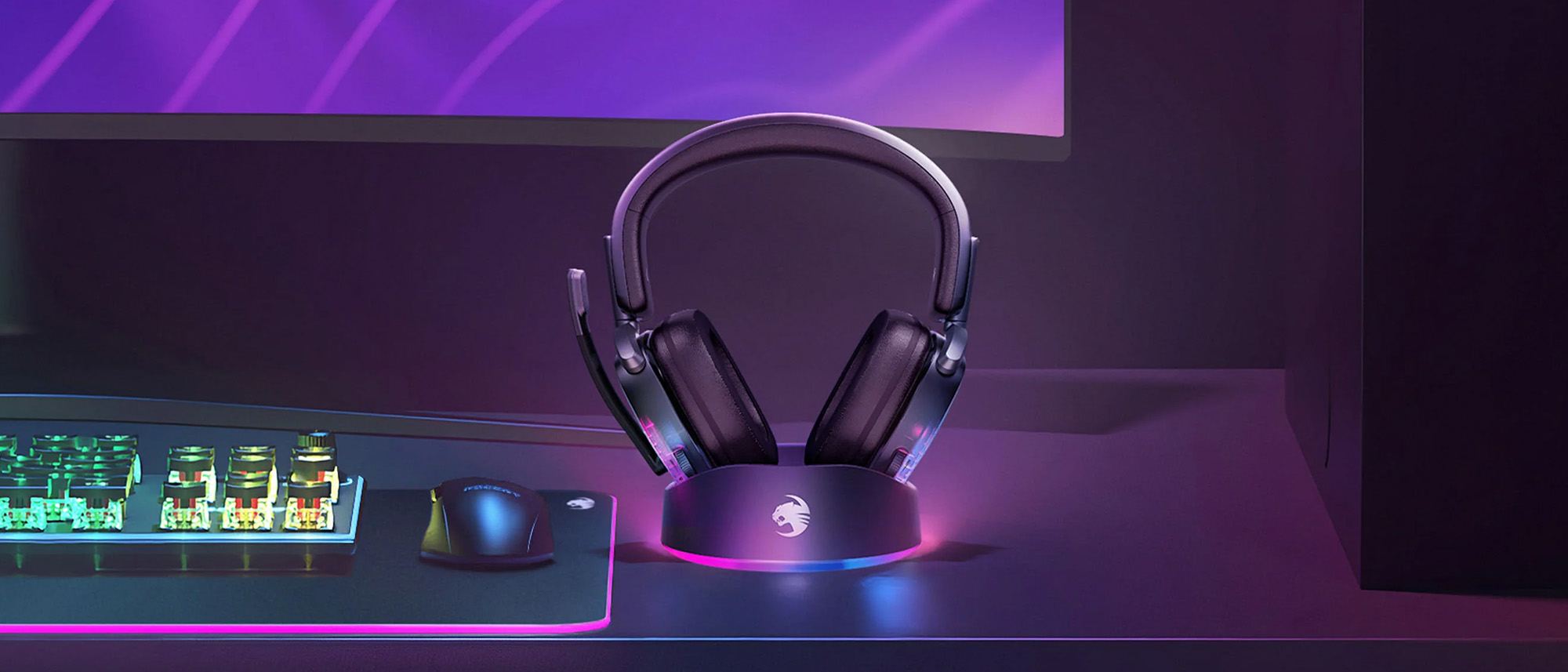Tom's Guide Verdict
Stuffed with an impressive array of innovative and useful features, Roccat’s Syn Max Air has everything — except for truly remarkable sound quality.
Pros
- +
Dual wireless connectivity
- +
High-speed charging
- +
RGB charge stand
- +
Well padded ear cups
Cons
- -
Too many cables involved
- -
Swarm software isn’t great
Why you can trust Tom's Guide
Roccat isn’t the first name you bring to mind when you think gaming headsets, but the company’s $250 Syn Max Air wireless headset demonstrates that’s no bad thing - the German manufacturer has to work that bit harder than Corsair, Razer et al to turn heads, and the net result for you and me is new products with cool features.
The Syn line has been expanding slowly since 2021, and this Max model lives up to its name by delivering a new top of the line, premium-priced wireless headset with a charging station supplied. Expectations rise in linear fashion with pricing though, and with this model going up against the Steelseries Arctis Nova Pro, Corsair HS80 Wireless RGB and Razer Barracuda Pro there’s no room for design flaws or missing features.
So read on, as I will tell you why Roccat should be in the conversation for your next wireless gaming headset.
Roccat Syn Max Air review: Features and controls
We’ve got a lot going on here. First is the RGB stand, which not only gives you fast charging via a three-pin connection, but also the obligatory lighting. Personally I’m not usually a fan of turning my desktop setup into an aerial view of the Vegas strip, but in this case I find the lighting cues helpful — a red glow around the stand’s base when I mute the mic, AIMO RGB while in-game, and more lighting cues can be configured in Roccat’s Swarm software.
This being a wireless model, there are not one but two wireless connection types - Roccat’s Stellar wireless, and good old fashioned Bluetooth 5.1. I always appreciate this feature in a gaming headset because it not only prevents signal dropouts, but gives you a few more device options to use it with. However, if you’re connected to your PC via Bluetooth, you can’t use the volume scroller on the headset.
In addition to that notched volume scroll wheel on the left earcup, there’s another wheel that controls mic monitoring by default. Speaking personally, it’s always a massive plus to find this physical control on a headset since Steelseries first mapped it to the Arctis. Roccat goes above and beyond here though — this wheel can be configured to control the Superhuman Hearing mode designed to exaggerate FPS sound cues, or as a bass response control, all via Swarm.
That’s a lot of functionality in one headset, and I’ve found that I actually make use of those features daily — especially chat mix, and casting an eye on my stand to make sure I’m muted.
It comes with a cost, however, which goes beyond the financial outlay. There’s a lot of cables involved: two running from the stand to your PC or console, one handling the superfast charging, and another handling everything else. Plus, to update the Syn Max’s firmware, you need to connect that directly to your PC too. It feels like a lot of wires for a wireless headset.
Roccat Syn Max Air review: Design and comfort
Straight out of the box, the squared-off angles and chunky aesthetic of this headset appealed to me. Over long-term testing I’ve found that design is about more than looks.
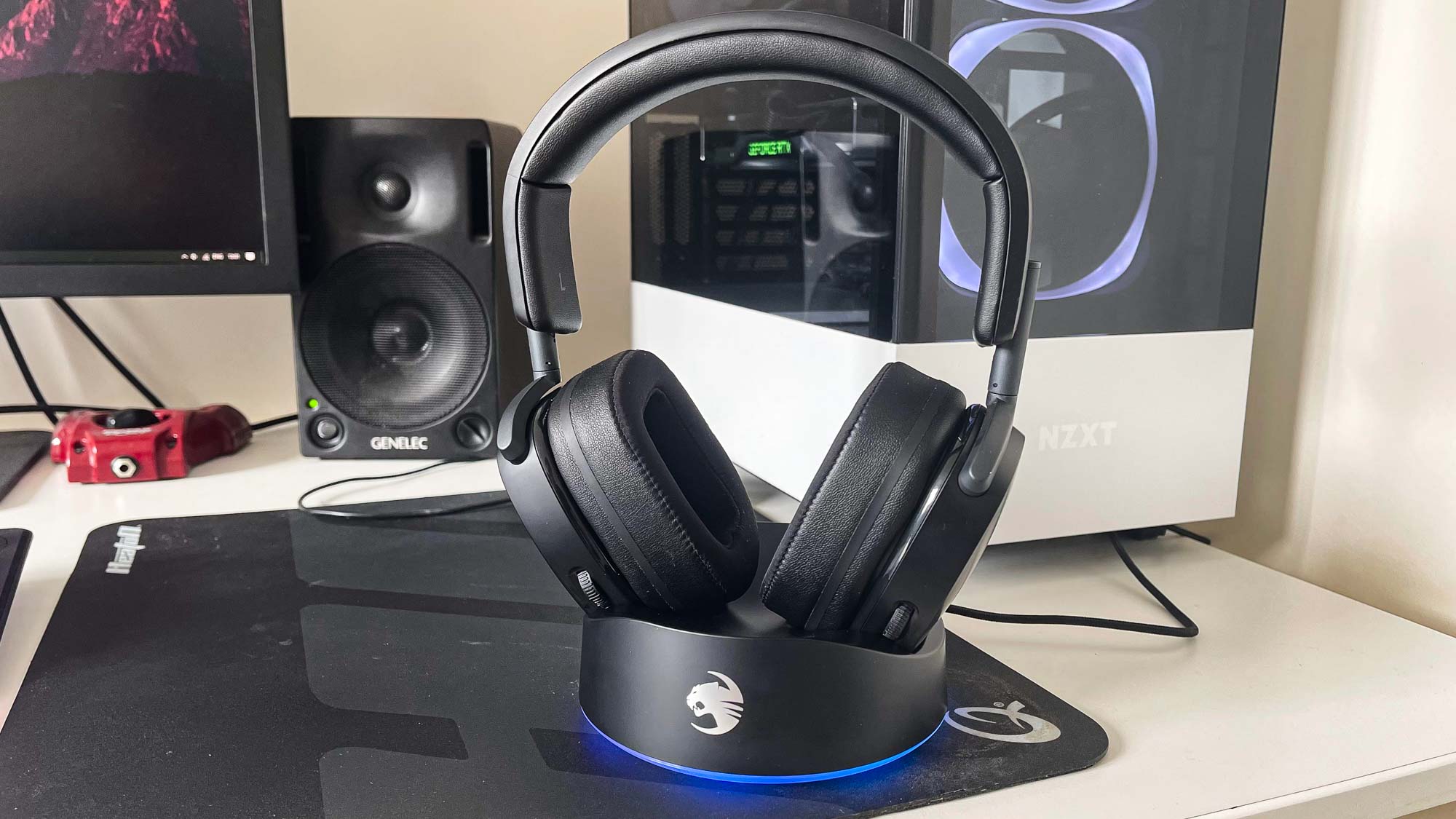
There’s just the right amount of clamping force applied to the ear cups to keep the headset feeling secure without digging in during longer sessions. It’s a very slightly looser fit than you’d find on a HyperX Cloud Alpha or Corsair’s HS65, for example. Plus, while the ear cups are finished in a really soft and luxurious pleather around high grade memory foam, the aim of this design isn’t to create a totally airtight space around your ears where bass frequencies can resonate in their own chamber. The Syn Max Air allows a little bit of bleed, and that bit of airness has kept this unit cool during that special stage of British summer we’ve come to know as ‘hell’.
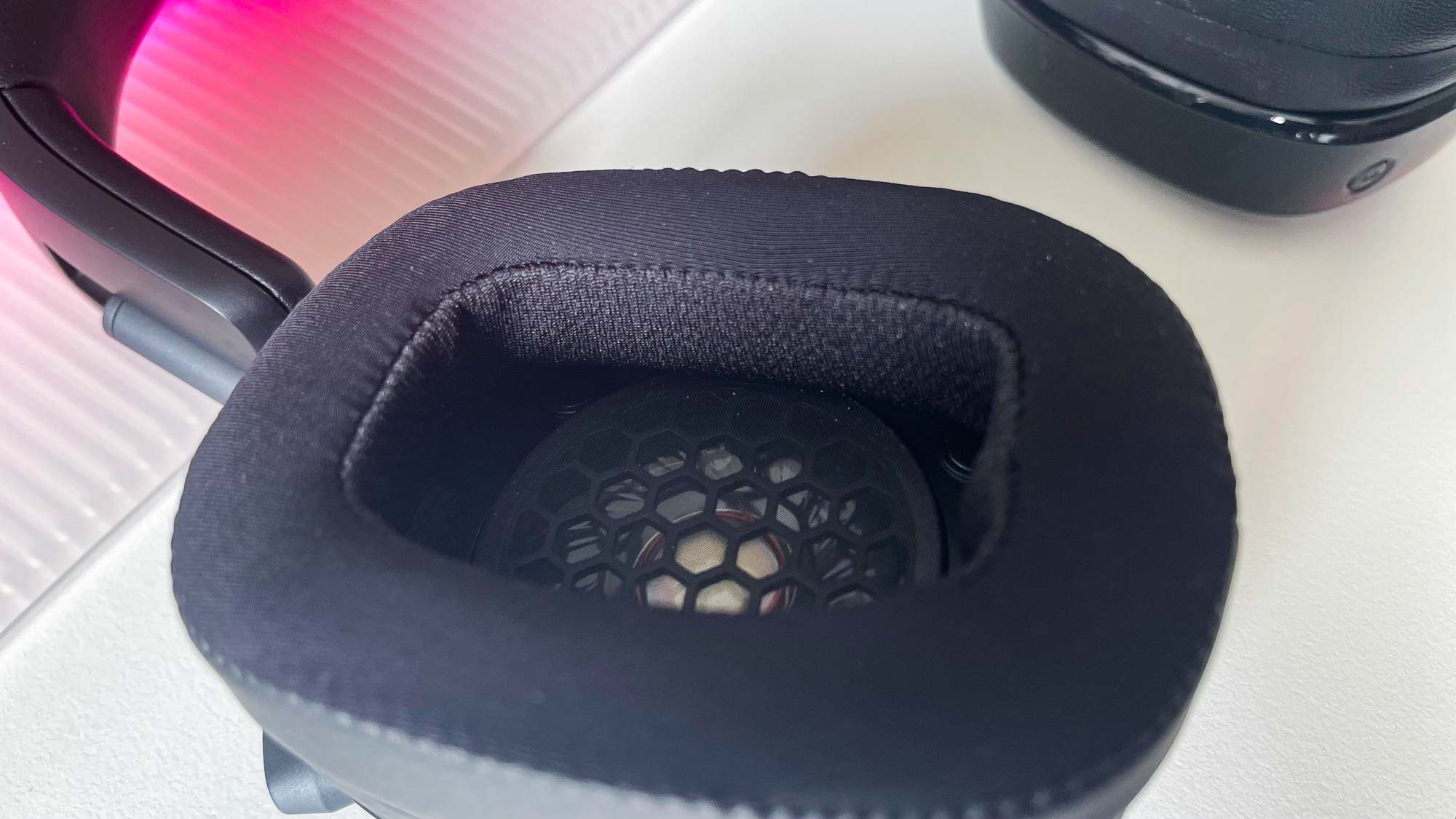
There’s not a huge amount of adjustability to the headband. Its hinges pull down by just under an inch on each side, but in practice that gave me plenty of fitting room on my admittedly small (but headset expertise-packed) cranium. These hinges are incredibly robust too, and quiet as a mouse when you’re adjusting them. You can feel how badly Roccat wants to outdo its rivals with the construction quality of this component, and in this instance it’s succeeding too.
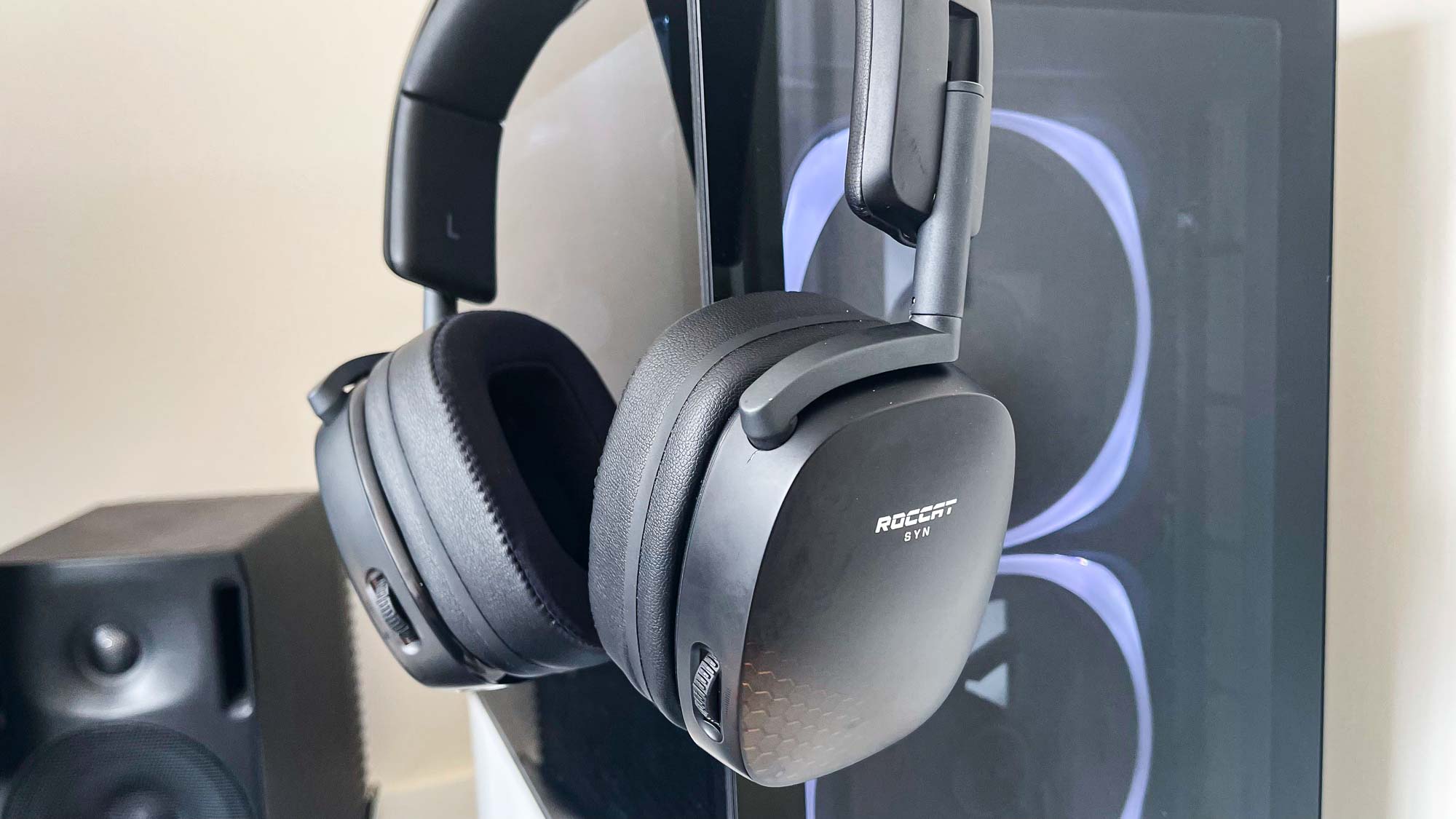
The square ear cup design means, naturally, a squarer space around your ears, but the proportions are generous enough that you’re unlikely to have any problem achieving a nice uniform fit around your ears and the padding depth is beyond generous. If things go south for me, I’m just going to have a bunch of these ear cup pads delivered and sleep on them in lieu of a mattress. Although there isn’t a dedicated notch in the padding for glasses frames, those of a bespectacled persuasion will still find a comfortable fit here too because of the lower clamping force and extra-thick pads.
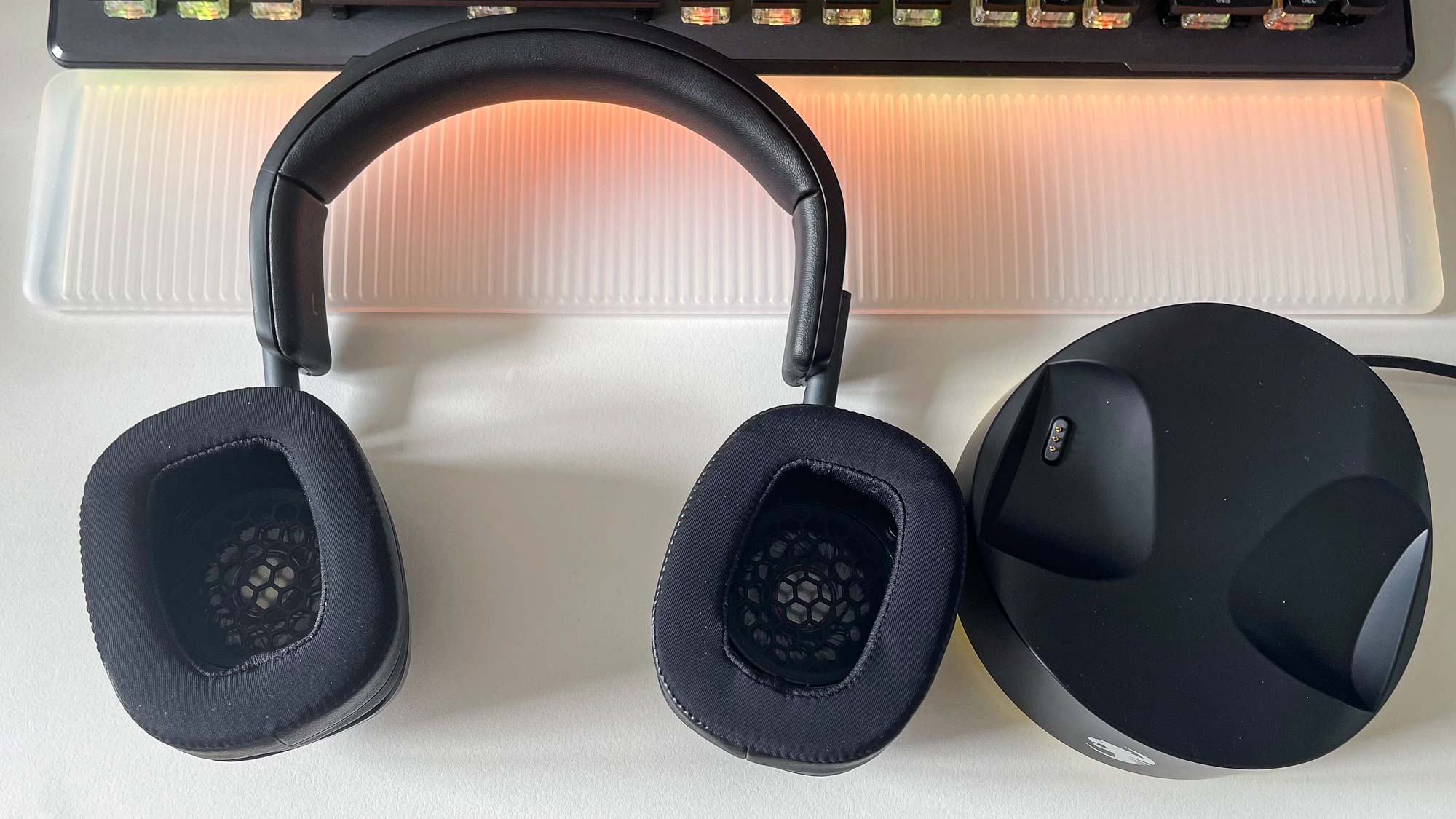
A quick word on the RGB — I don’t love it. Roccat’s AIMO RGB sequencing is generally pretty good and I have no issue with the color patterns that play across this headset’s honeycomb lighting zones. Put simply, it just doesn’t look very premium. There’s a semi-transparent appearance to the zones that just doesn’t look aesthetically pleasing to me. I’d have preferred pin-sharp definition between lighting zone and opaque material. But that’s not grounds to drop marks off this headset, just my take on its appearance.
Roccat Syn Max Air review: Sound quality
Roccat’s 50mm neodymium drivers have power and some decent articulation, but they don’t quite sparkle like the best gaming headsets can. These particular drivers are created by Turtle Beach and go under the ‘nanoclear’ moniker, alluding to the fact you can see the driver in the ear cup itself through a clear mesh, but the Syn Max Air doesn’t sound tight and punchy like the best Turtle Beach cans. And that’s likely down to the design of the ear cup and headband - everything matters when it comes to sound reproduction, from the resonant properties of the construction materials to the exact fit around your ear.
So rather than extraordinary (like Audio-Technica’s ATH-G1s for example), the sound quality is capable and competent. It’s versatile too, thanks to the 3D audio functionality provided by Waves Nx, rather than the more commonly found Dolby Atmos. Personally I’m not a fan of that tinny, artificial ringing sound that digital surround creates. It feels like the headset equivalent to the bad old days when mice used to brag about having huge DPI — it’s a stat on a box, but nobody actually uses it.
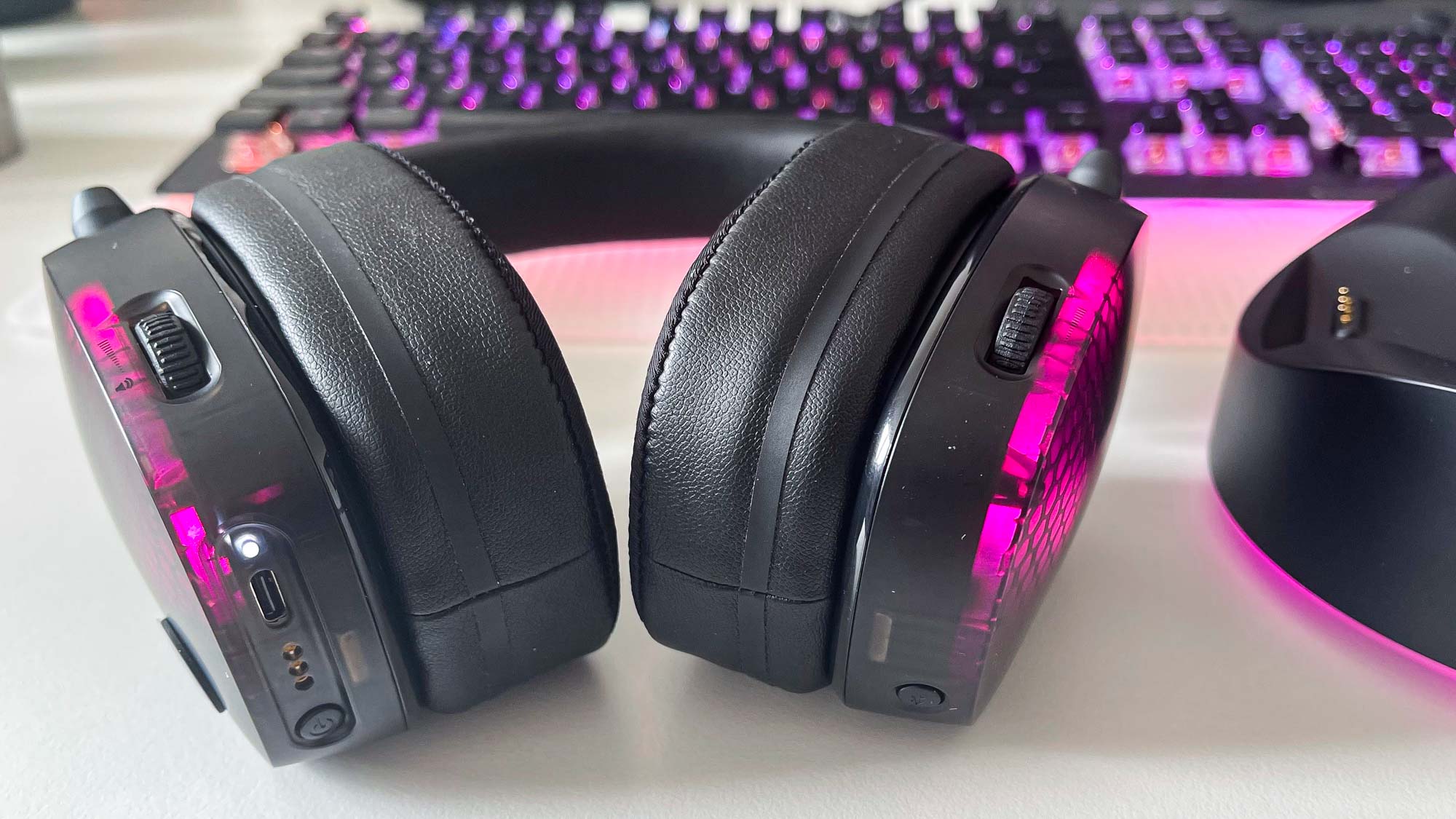
However, Roccat’s Swarm software lets you toggle 3D audio on and off, and to sculpt the EQ response a bit too with the ability to save profiles. That’s useful, but it doesn’t change a competent sound into a fantastic one.
The microphone quality is pretty clear, if slightly hard on the sibilant sounds. But again, you can adjust the aggressiveness of the noise gate in Swarm and that shapes the sound a little. Overall, it’s more than clear enough for Discord chats and work calls, lacking body just slightly but cutting through the mix when it matters.
Roccat Syn Max Air review: Battery life and charging
Roccat states a 16-hour battery life on full charge, and while that’s technically true, you need to disable the RGB lighting and connect via Bluetooth only to achieve it. 13 hours is a more realistic figure if you’re using it with the lights on and Stellar wireless connectivity.
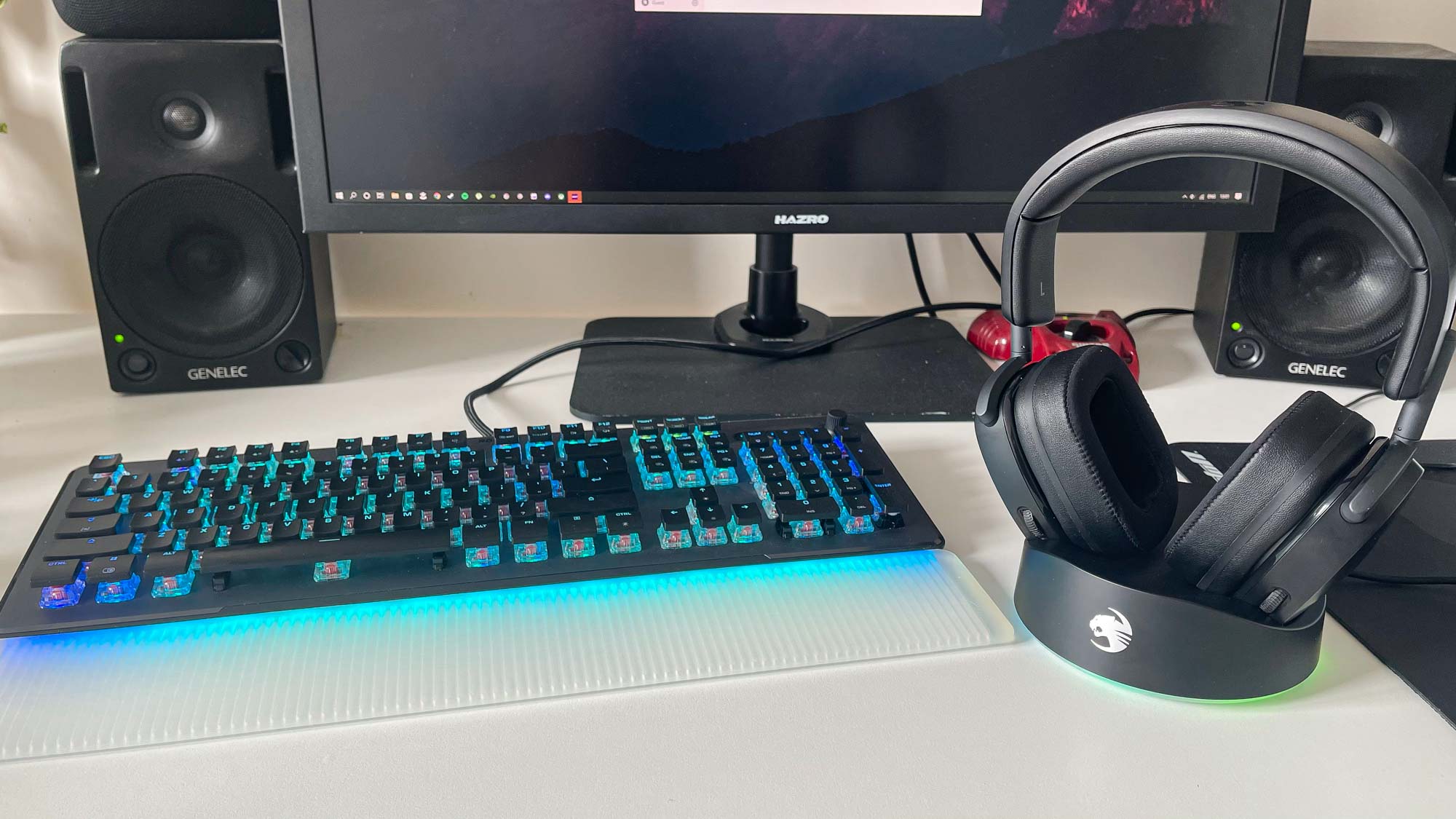
However, battery life is less of an issue here than in many models because it features not only USB-C charging directly from the headset to your PC, but also superfast charging on the stand. You can juice it up from empty to 100% in about two hours this way, and that’s a real advantage at this price point where charging stands are definitely not de rigueur yet.
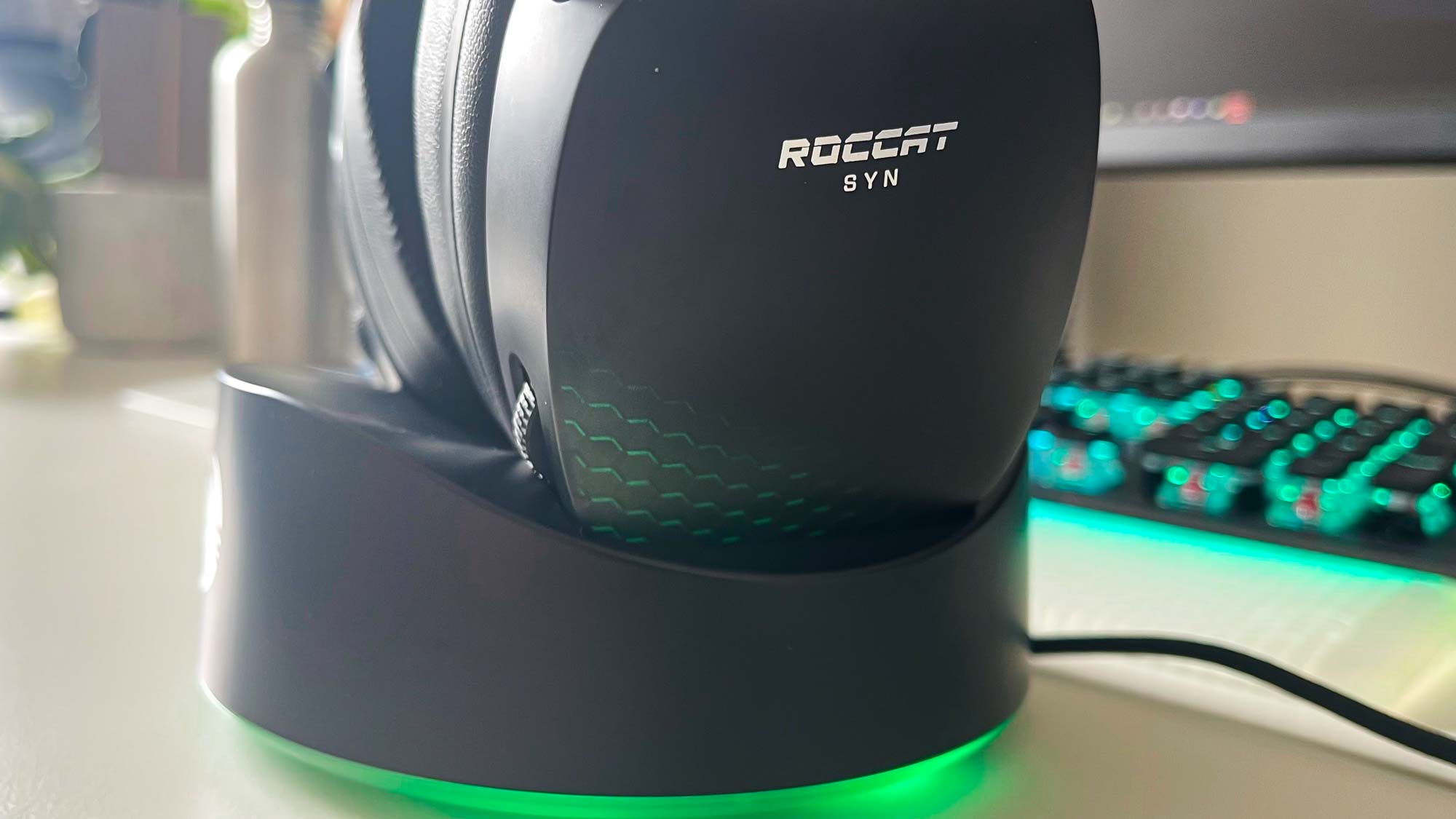
If there’s a downside to this arrangement, it’s the sheer chattiness of the headset in letting you know whether it’s powered on and how much battery life it has left. There’s a monologue to sit through every time you turn it on, and the warning beeps come thick and fast when you start to run on fumes. This is part of the wireless headset life, I guess, and it’s certainly not specific to this model - it’s just something to bear in mind.
Roccat Syn Max Air: Verdict
Roccat’s becoming a major player in the peripherals space, and it’s thanks to well designed and well constructed hardware like the Syn Max Air. You don’t often get a wireless charging stand, dual wireless connectivity and deep software customisation all in one package, even at this premium pricing. So the fact that Roccat delivers on nearly all of it with such an eye for detail is impressive.
Nearly all of it. The sound quality just isn’t fantastic. It’s fine. You hear what you need to in-game, and it’s bolstered by the option to use Superhuman Hearing mode and 3D audio if that’s your thing. But in the next generation of the Syn, Roccat’s focus should be to get that Turtle Beach audio driver and the headset frame working together in perfect harmony.
Phil Iwaniuk used to work in magazines. Now he wanders the earth, stopping passers-by to tell them about PC games he remembers from 1998 until their polite smiles turn cold. He also makes ads. Veteran hardware smasher and game botherer of PC Format, Official PlayStation Magazine, PCGamesN, Guardian, Eurogamer, IGN, VG247, PCGamer, Tom's Guide and What Gramophone? He won an award once, but he doesn't like to go on about it.
